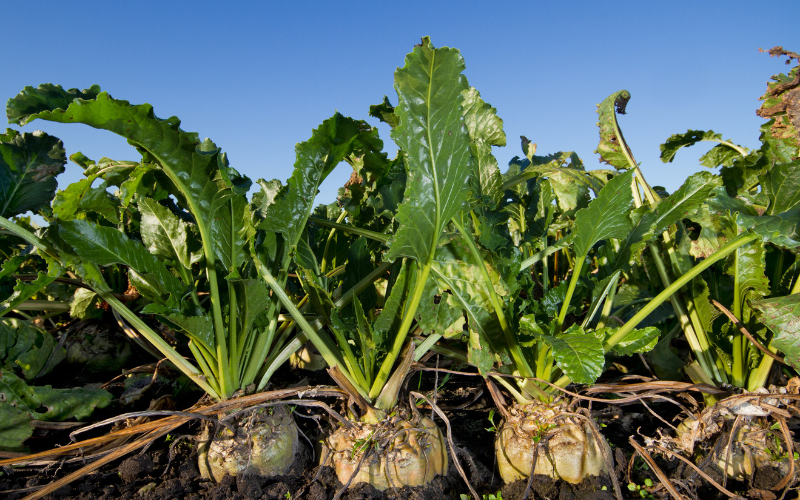Sugar Beet: A Natural Source of Sweetness
Sugar beet, revered for its sweetness, is a staple in food and drinks worldwide. Its versatility as a natural sweetener enriches flavors globally. Cultivated in various terrains, it yields a high sugar content, forming the basis of sweetening solutions. This exploration delves into its extraction process, extolling its benefits and potential beyond sweetening. From humble origins to profound impact, the plant shapes culinary landscapes. It stands as a symbol of natural sweetness, poised to influence gastronomy for generations. Join St. Charles Trading as we uncover the secrets of this plant and celebrate its significance in the culinary world.

Extracting Sweetness
Sugar beet, cultivated specifically for production, contains abundant sucrose. The process involves slicing the plant into thin pieces, immersing them in hot water for sucrose extraction, followed by purification and crystallization to obtain sugar.
Benefits of Sugar Beet as a Sweetener
Sugar beet’s natural derivation distinguishes it from chemically synthesized artificial sweeteners, appealing to consumers favoring natural ingredients. Its neutral flavor facilitates seamless integration into recipes, enhancing food products’ quality and mouthfeel.
Managing Blood Sugar Levels
With a low glycemic index, this ingredient presents a favorable option for individuals monitoring blood sugar levels. Compared to alternatives like table sugar or honey, the ingredient’s lower glycemic index offers stability to blood sugar levels, particularly beneficial for those with diabetes.


Beyond Sweetening: Additional Uses
Beyond sweetening, sugar beet contributes to various sectors within the food industry. Byproducts such as pulp and molasses find utility as animal feed or biofuel sources, underscoring the ingredient’s role as a sustainable crop.
Sugar Beet - A Sweet Future
In summary, sugar beet emerges as a versatile, natural sweetener ingredient with myriad benefits for the food industry. Its neutrality in flavor, coupled with low glycemic index and sustainable sourcing, positions the ingredient as a preferred choice amidst the growing demand for natural and eco-friendly ingredients in food and beverages. As always, contact us to learn more about our company services and ingredients!
